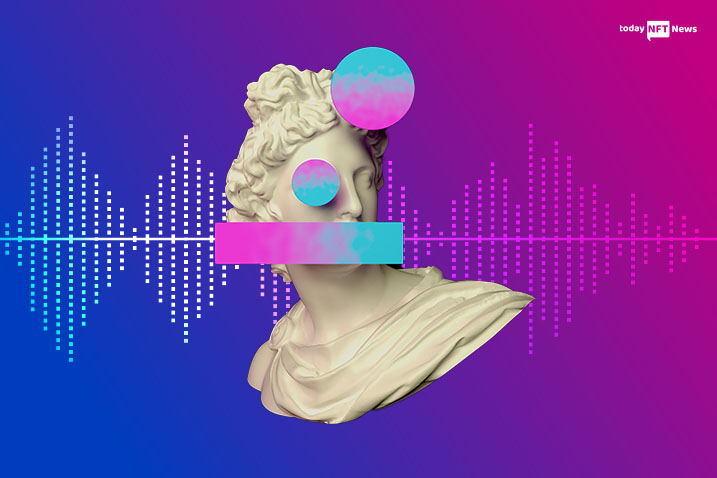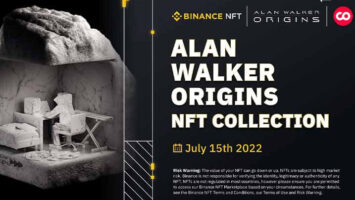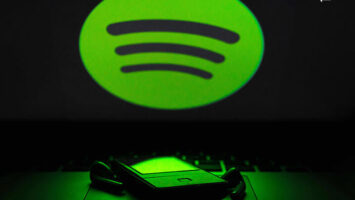Non-Fungible Tokens (NFTs) are considered attractive and exquisite digital images by a number of people despite these images being extremely unique. From videos, to art, music and memes, an NFT can be anything.
Though every type of NFT is popular in its own way, music NFTs have emerged as assets that can change the fate of the music industry from its roots.
Launching the music NFTs the right way can decentralize music and can eliminate useless things such as labels, sponsorship and contacts. Not only will this lead to a whole new genre but allow music lovers to enjoy music in a different way.
Is that all or there’s more that’s shared by NFTs and music? Let’s find out!
The bond between NFTs and Music
Music NFTs allow listeners to purchase, share and create music. These non-fungible tokens are rare one-of-a-kind assets that remain on the blockchain. It’s not the music that’s the hash on the blockchain but the record of the song and its original owner.
Currently, music-based non-fungible tokens have a pretty prosperous future. From acquiring a music NFT of a tune to a real rock music album, the possibilities are limitless and seem to increase in the coming time.
Despite not gaining as much popularity as digital art NFTs, music NFTs are still doing great. These NFTs began in 2021 and since then a number of artists have created them to connect with fans and broaden their reach via selling them.
Top of The Blocks is an NFT music chart created to trace the success levels of such non-fungible tokens.
Initially, the tokens that created the chart were less expensive. However, with more and more people developing interest in music NFTs, their popularity increased and the price that was once $300 reached $3,000.
Considering the rise in fame, even renowned celebrities have begun supporting them. For instance, Snoop Dogg has announced his plans to create the very first NFT record label, Death Row Records. Also, Universal Music has enabled its artists to launch music-based non-fungible tokens on the blockchain.
Jacques Greene, an electronic music star, sold the publishing rights to ‘Promise,’ a new single in February 2021. The sale happened via Foundation and made 13 ETH.
Music NFTs will transform the future of music
Monetization is of course the first and foremost way music NFTs can upgrade the future of music. Money is the one major fact underestimated in the music business. Reason being, most of the individuals hardly understand the importance of money to artists.
Music is no different than any other product in the market. Talent decides the success of an artist, which in this case is, quality of the product and market budget. A number of skilled musicians find it challenging to make more money and take their music towards fame and recognition without depending on money-minded record labels.
Music NFTs allow talented yet unsuccessful artists to sell music owned by them to their fans and followers directly. Also, they can utilize money from the sales to promote their artistry. The money can be invested for tasks such as shooting music videos, marketing and brand promotion.
There’s one artist who’s using music-based non-fungible tokens. In 2013, Violetta Zironi got third spot when she took part in X Factor. Since then, she has given her best to achieve mainstream success though she has made negligible progress. She was introduced to NFTs by her mother upon which she promoted her music for months on Twitter and Discord to finally witness progress. After three months, she began making thousands from selling her music in the form of non-fungible tokens.
Music NFTs can be the stepping stone to equitable compensation among artists. The music industry has two sides, the haves and have-nots. For instance, the majority of the top 1% artists on Spotify make less than $50,000 per year. These artists enter record label deals and acquire nothing more than peanuts out of them.
Music NFTs have the potential to give artists the power they deserve and sell an NFT for tens of thousands of dollars, an amount they can hardly earn from the same songs’ streaming income.
Moving on, music NFTs allow creative partnerships among artists. Musicians and digital artists can join each other for music and art NFT collection to act as an exclusive form of art.
Music NFTs can be transformed means that it is possible for musicians to distribute new content without DSPs. Moreover, owners of the non-fungible tokens can transform them on their own via creation of a fan edit.
Music NFTs offer opportunities
A number of opportunities are associated with music NFTs and cater to everyone from fans to musicians, labels and event attendees.
- Listeners can get access to live performances, playlists, add-on tracks and playlists.
- Attendees of music events can have exclusive access as well premiums like VIP benefits.
- Fans of music can get to connect with their favorite musicians on a deeper level.
- Budding musicians can get wider exposure and reach.
- Labels and musicians can utilize the possibility of generating a branded PFP to be an element of their NFT strategy.
- Music NFTs can be used as tickets for live events and enable fans to be a part of the events and concerts without depending on a real ticket.
- Artists can make digital assets to provide fans privileges like unique content and early access to new tracks.
Hurdles in the path of music NFTs
One of the major issues with music NFTs is that they are new and very young since they are only one to two years old and will take time to prove their worth.
The NFT space is also on its growing stage. No doubt it’s expanding quickly, it too has a limit to reach. Music is all about numbers; thus, unless the majority of people begin deploying NFTs, music won’t get to utilize non-fungible tokens like a distribution and monetization channel.
Music NFTs also suffer from technical obstruction and artists who want to move into the field must overcome the hurdle. This is demotivating for a number of artists and inhibits them from completely using music NFTs the way they want.
How to enter into NFTs as a musician?
Here are the steps musicians can follow to make a move into the NFT world:
- The very first step is choosing the NFT marketplace, which is a website that allows people to showcase the non-fungible tokens minted by them. It is also possible to buy NFTs from here after linking it to the wallet.
- Such marketplaces reside on blockchains. Minting NFTs on the blockchain needs a gas fee. The fee has to be paid to the network to spend the needed energy and mint the music like a non-fungible token.
- Upon creating the NFT comes marketing it, which is best done by engaging with the music NFT community. Being a part of Google meets, Twitter spaces and joining Discord communities are the best ways. An artist can show their talent by pulling attention towards their NFT, which also excites others to invest in it.
Important suggestions
In recent years, certain frauds and illegal activities have harmed the NFT world, which has made it important for artists to be very careful when it comes to protecting their NFTs.
Another worthy suggestion is providing an extra utility with the music token since not everyone would take interest in buying a song that’s possible to listen on streaming services.
Why pay attention?
Music NFTs offer us a new way to view music in a new way since they can change the way music is listened and experienced. Furthermore, they display an exciting assets’ class that is profitable for crypto investors.
NFTs can help musicians to get fair compensation for their work. They have the potential to ensure that musicians are more fairly compensated for their work. For example, Mike Shinoda’s personal anecdote generated over $11,000 for his very first non-fungible token.
He shared that even if would have uploaded the complete version of the song to DSPs, he wouldn’t have made close to $10k.
Here’s the crazy thing. Even if I upload the full version of the contained song to DSPs worldwide (which I can still do), i would never get even close to $10k, after fees by DSPs, label, marketing, etc.
— Mike Shinoda (@mikeshinoda) February 6, 2021
(more)
In 2021, King of Leon launched their music like an NFT and made $2 million. Then there’s Grimes who sold the non-fungible tokens of her records and grabbed over $6 million. Singer Ozuna generated $456,000 in just 15 minutes.
In November, K-Pop Star Lee HongKi’s Music NFT sold out in an hour.
Wrap up!
Music NFTs will change the world particularly in terms of crypto. Once they are accepted by a majority of people, artists will get a new way to express themselves and allow music lovers to indulge in music. Last month, Today NFT News reported that Royal, 3LAU’s marketplace, was finally launched to connect the masses with music NFTs.
Last but not the least, not only musicians, but the music industry is attracting leading NFT collections as well. For instance, Bored Ape #9797 entered into the music industry via a deal with Create and Milo Stokes.
Meanwhile, find out more on “How NFTs and Smart Contracts Could Change the Music Industry.”









